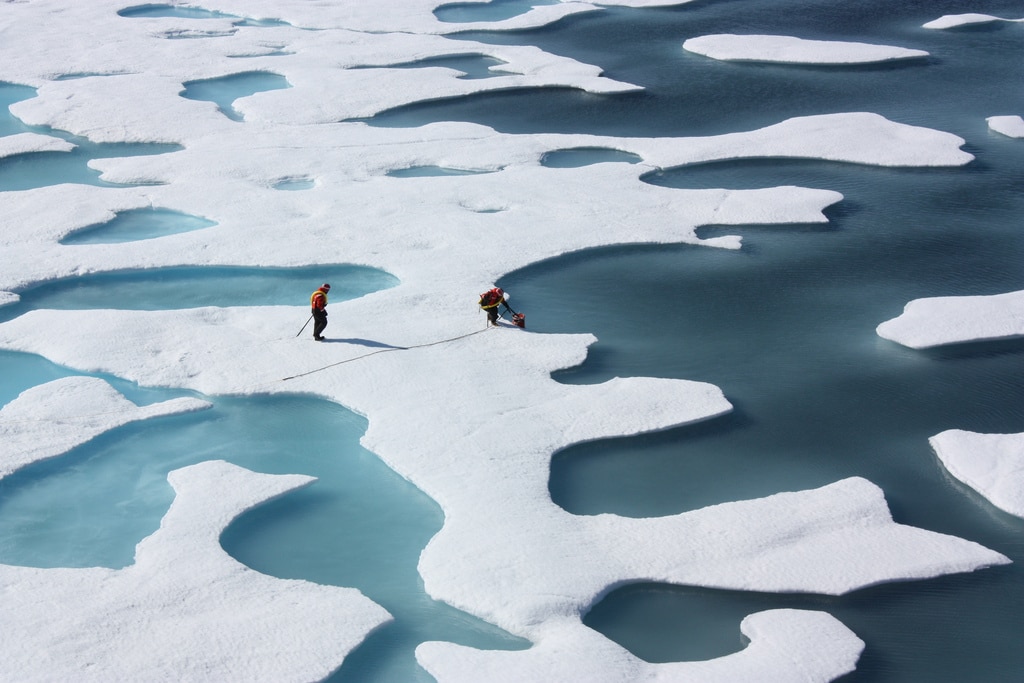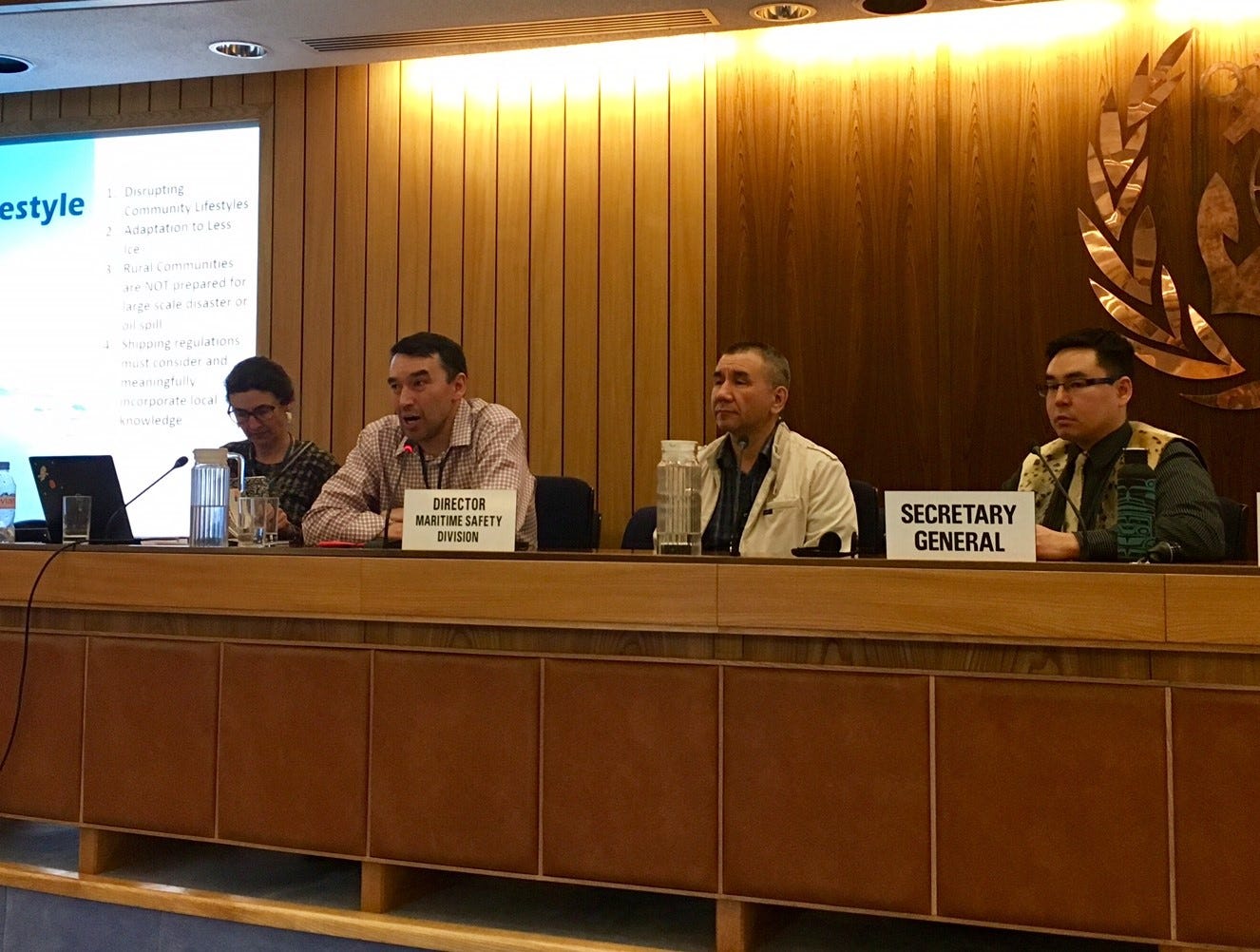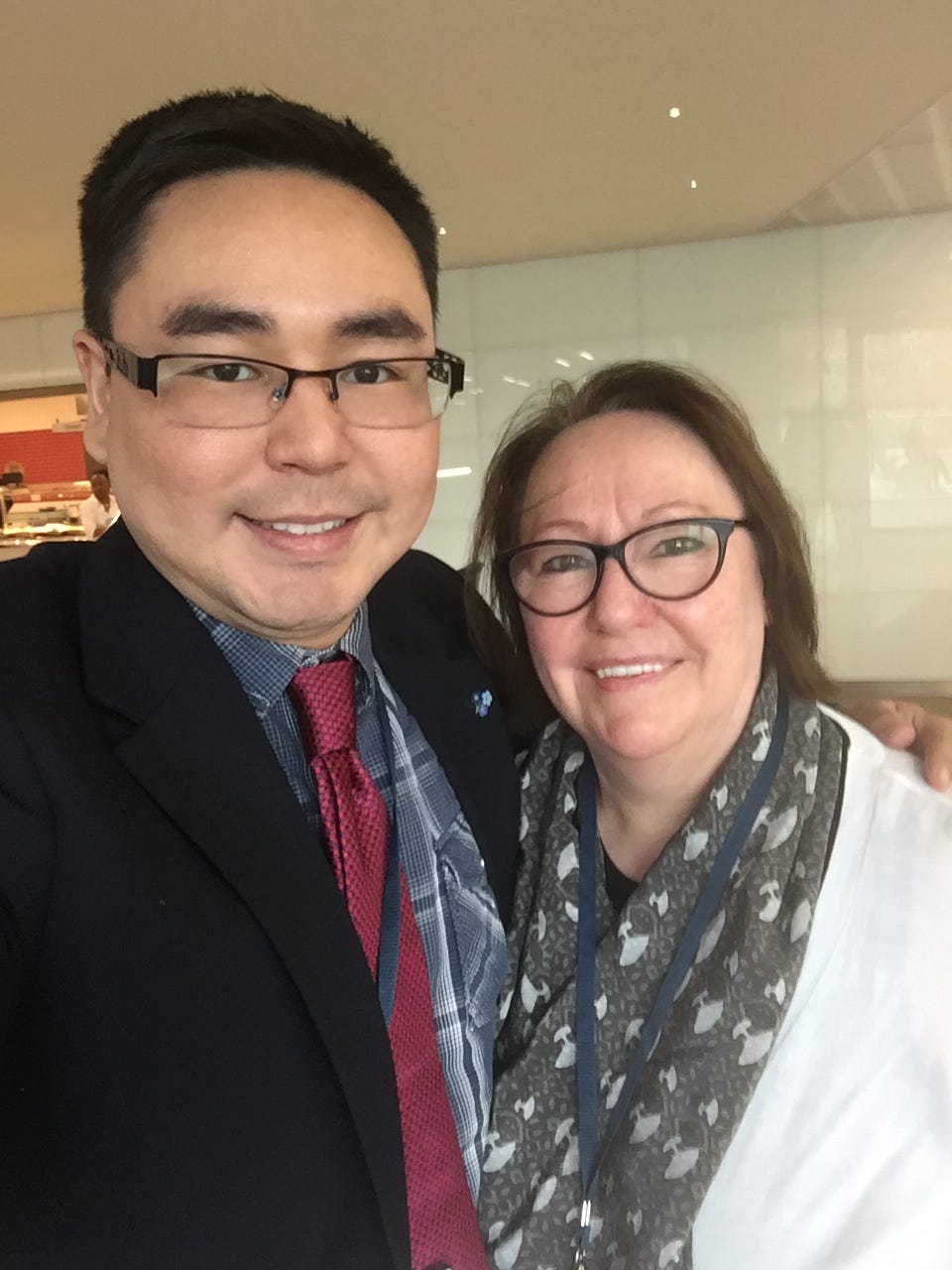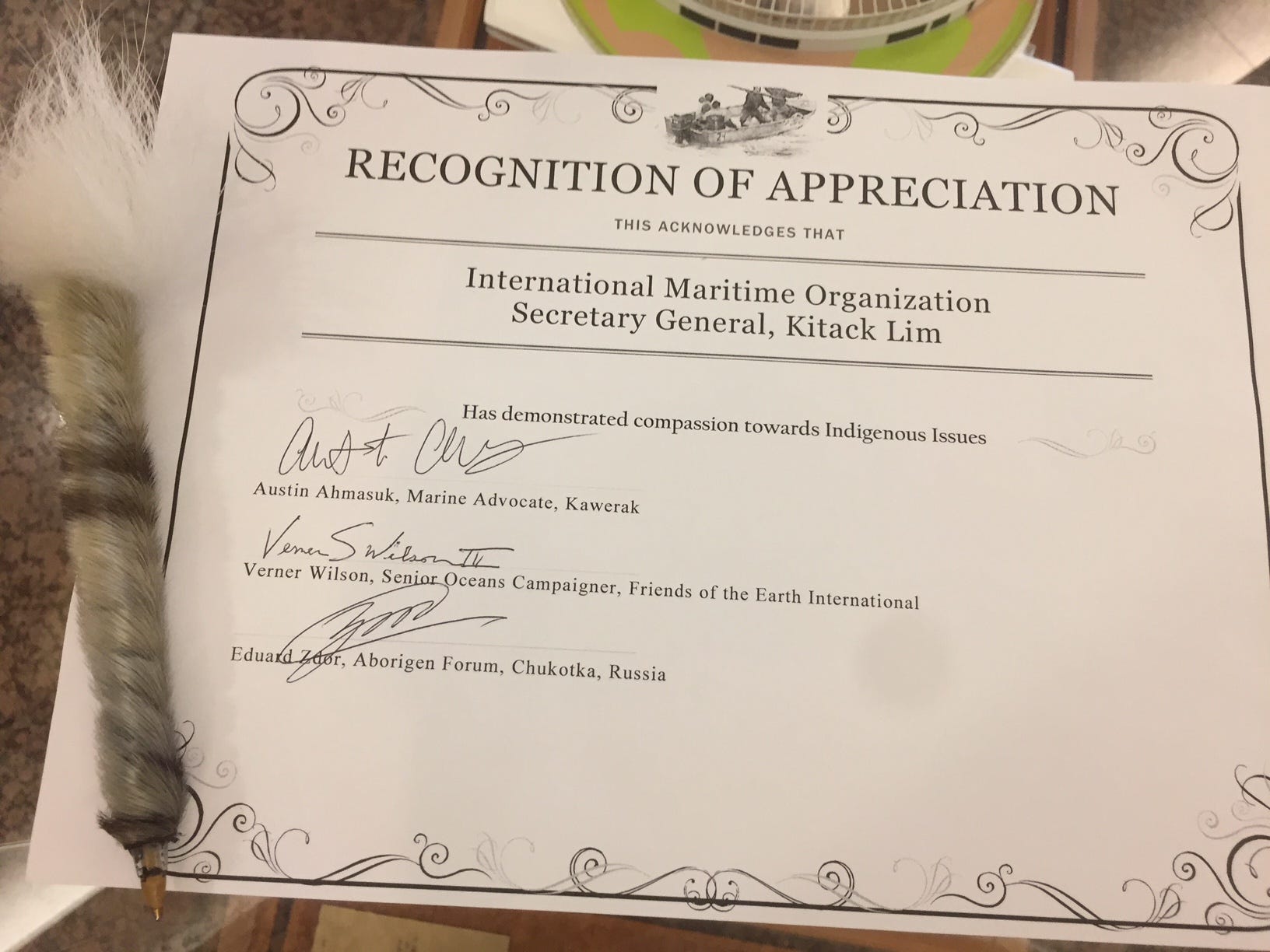- Blog
- Oceans
- Arctic Indigenous Voices
- IMO advances anti-pollution initiatives at MEPC 72
IMO advances anti-pollution initiatives at MEPC 72
by Verner Wilson III, senior oceans campaigner

Donate Now!
Your contribution will benefit Friends of the Earth.
Stay Informed
Thanks for your interest in Friends of the Earth. You can find information about us and get in touch the following ways:
This year is turning out to be a key year for environmental protection initiatives regarding shipping in the Arctic. Friends of the Earth (FOE) staff continue working with our partners to achieve important goals at the IMO. At the April Marine Environment Protection Committee (MEPC) meeting in London, we were optimistic that a ban on Heavy Fuel Oil (HFO) in the Arctic would conditionally move forward. This was timely, as an HFO spill off Kodiak Island in Alaska just a couple of months ago showed damage to a sensitive marine area home to sea lions and otters. The U.S. Coast Guard estimated the 3,000 ton HFO spill to cost $9 million, or nearly $800,000 a ton in an area that is not as remote and ice-free as the Arctic. It isn’t hard to imagine just how devastating a spill near my relative’s home region in the Bering Strait would be, with the nearest Coast Guard station thousands of nautical miles away.

The Kodiak Island spill was just one of a number of oil spills off the coast of Alaska, including the Exxon Valdez and Selendang Ayu that spilled tens of thousands of gallons of HFO. Prior to the meeting, I wrote about these incidences and why we need to ban HFO in Splash 247, a shipping publication. The Clean Arctic Alliance that FOE is a part of, alongside many of our NGO partners, spoke to many national delegations gathered at the IMO about the need for a ban on HFO in the Arctic. Three of my fellow indigenous Arctic colleagues and I met with IMO Secretary General Kitack Lim for the fourth time at the IMO, where he continued to express support of our efforts. Our NGO and Arctic indigenous partners outlined issues and potential solutions for shipping in the Arctic with Secretary Lim and his staff. For his support, we presented him with a certificate of appreciation for his dedicated compassion towards Indigenous issues. We also held two side events for IMO delegations. At the first one, titled “Arctic Indigenous Perspectives: Climate change and new shipping routes,” I spoke about ways to increase collaboration and coordination between shipping stakeholders and indigenous peoples. Some of the suggestions I presented included creating transboundary shipping forums, and accident response training for Arctic communities.
My personal hero, Arctic Environmental, Cultural and Human Rights Advocate Sheila Watt-Cloutier also gave a rousing speech to IMO. Her emotional words moved me deeply.
“We are constantly reminded how taking action on greenhouse gas emissions will negatively impact our economy. I understand this same lame excuse, which is a very outdated card to play at this stage with our climate crisis. I would say do not play this card when it comes to banning Heavy Fuel Oil which has potential to create extreme irreparable damage to our Arctic oceans…and I repeat the Oceans are the life force and source of life for us as Inuit of the Arctic.”

With help from our partners in the Clean Arctic Alliance, we persuaded a coalition of 22 countries from across the world to move forward with an HFO ban as proposed by Finland and five other Arctic countries. The U.S. delegation co-sponsored these efforts, which I was especially thankful for. While an assessment of the ban’s economic impact on Arctic communities must be considered before moving forward, I have hope that the work of the Arctic Council in completing that research will allow us to move ahead without significant delay.
In addition to the groundbreaking work on HFO, the week was busy for FOE and our partners on a number of different issues. Notably, countries passed an effort to cut climate pollution in the shipping industry by 50% by the year 2050. My colleague John Kaltenstein, Senior Marine Policy Analyst for Friends of the Earth, also discussed potential future regulation of greywater and FoE’s research on ballast water and invasive species. We continued discussing efforts to obtain official consultative status for Arctic indigenous peoples with our indigenous partners, and commissioned a videographer to create a short film to be shared with Arctic communities and organizations on what the IMO is and how indigenous people can get involved.

Being part of the IMO process is integral for the health and wellbeing of our oceans. I am thankful for our partners and funders for helping to make a difference in the lives of Arctic communities, wildlife and the environment. With their support, we will continue our efforts for a healthy Arctic.
